———————
———————
———————
———————
Each time the sun rises and sets, a day passes and is lost. Why would you remain idol? All is just the Almighty’s presence. Mahadeva; great god
———————
———————
———————
———————
Each time the sun rises and sets, a day passes and is lost. Why would you remain idol? All is just the Almighty’s presence. Mahadeva; great god
—————
—————
—————
Note:Om E⁀B
Swami Vivekananda: “We meditate on the glory of that Being who has produced this universe; may it enlighten our minds.
x4
———————
———————
———————
Aim is the bija mantra associated with Saraswati
Namaha, to bend, give respect to
Saraswati is the goddess of knowledge, music, art, speech, wisdom, and learning
x2
x2
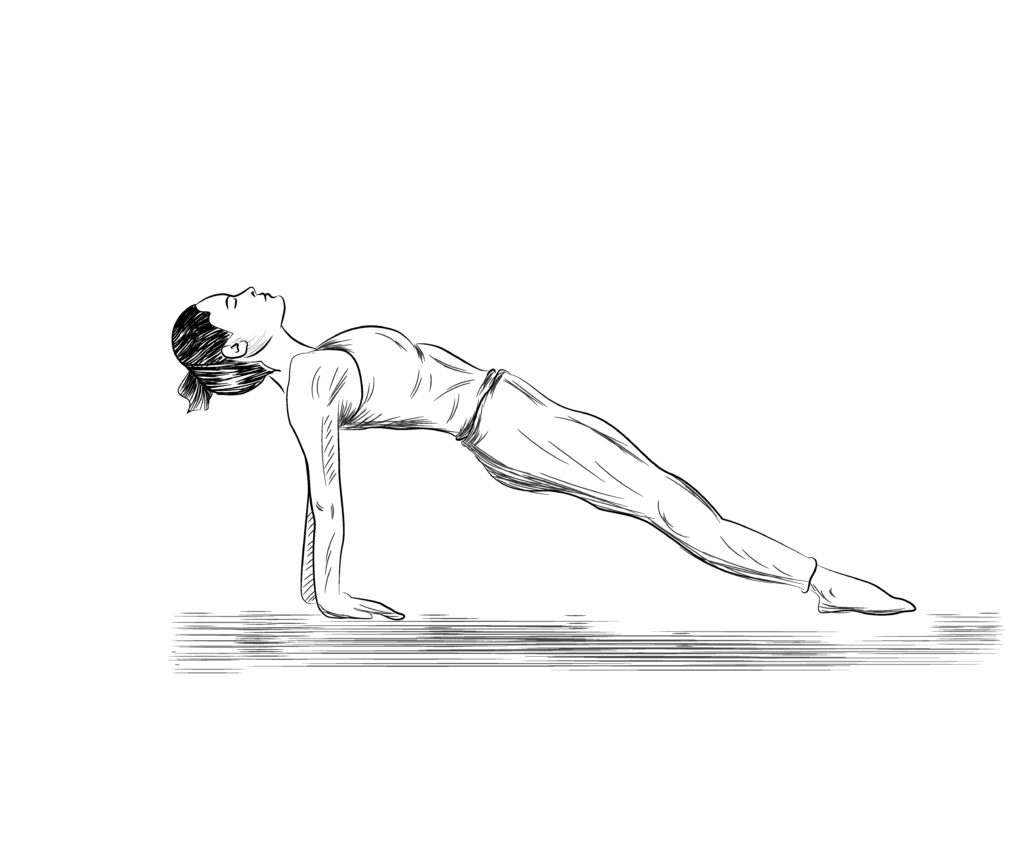
purr-vo-tahn-AHS-ah-nuh
Strengthens your arms, wrists, and legs
Stretches shoulders, chest, and front ankles.
From Staff posture with the arms behind your hips and the fingers pointed either towards or away from your body, begin to lean back into the palms.
Inhale and press down into the palms to lift the hips up toward the ceiling. As the hips lift, engage the legs by pulling up the knee caps and squeezing the thighs.
Press the bottoms of the feet flat down into the floor, gently squeeze the buttocks and engage Mula Bandha. Draw the shoulder blades together to lift up through the sternum.
To release: slowly exhale the hips back to the floor.
Align the body from the toes to the shoulders in one straight line.
If it feels safe you can carefully drop the head back.
Avoid if you have injury to the neck, back or shoulders.
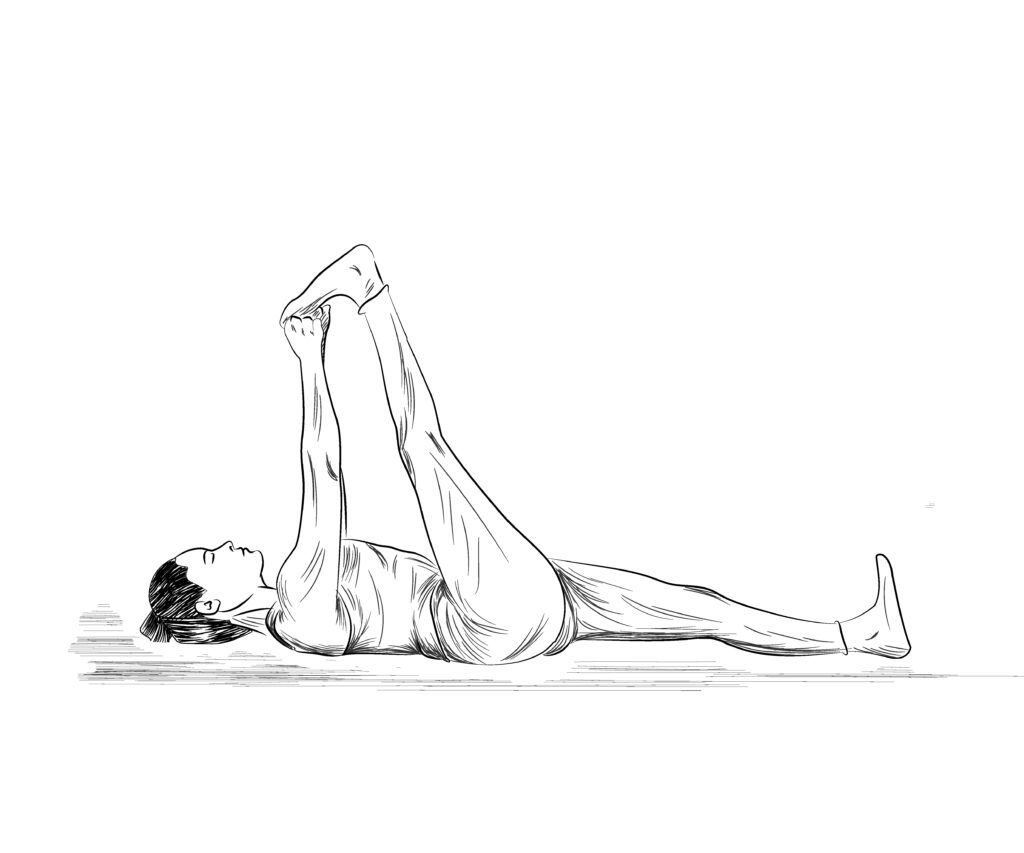
soup-TAH pod-ang-goosh-TAHS-anna
Lengthens the hamstring of the extended leg
Stabilizes the hip joint of the grounded leg
Improves hamstring flexibility
Strengthens the quads and hip flexors of the extended leg; hamstrings and glute of the grounded leg
Relieves low back pain, sciatica, and high blood pressure
Stimulates the prostate gland and digestion
Gently recline onto your back.
Inhale and lift your right knee toward your chest. Reach for the inside of your big toe only if you are able to maintain a neutral spine.
Exhale and draw your left toes toward your shin to flex the foot. Squeeze your left knee down to the mat.
As you inhale, extend your knee by engaging your quadriceps and pressing the heel upward. Allow your leg to lengthen toward the ceiling.
Exhale and draw your shoulders down to ground into the mat.
To exit, inhale and release the toe, but keep the leg extended. With an exhalation, release your arm and extended leg to the floor. Repeat on the opposite side.
Reach for the inside of the big toe with your first two fingers.
Keep the sacrum grounded into your mat.
Draw your knee toward your chest, reach for the inside of the big toe, and extend through the heel.
On each inhalation, feel your chest lift and spine lengthen. On each exhalation, draw your leg closer to your torso.
Avoid if Hip pathologies, Limited hip range of motion, Low back pathologies (avoid rounding), Ankle, knee, or shoulder injury
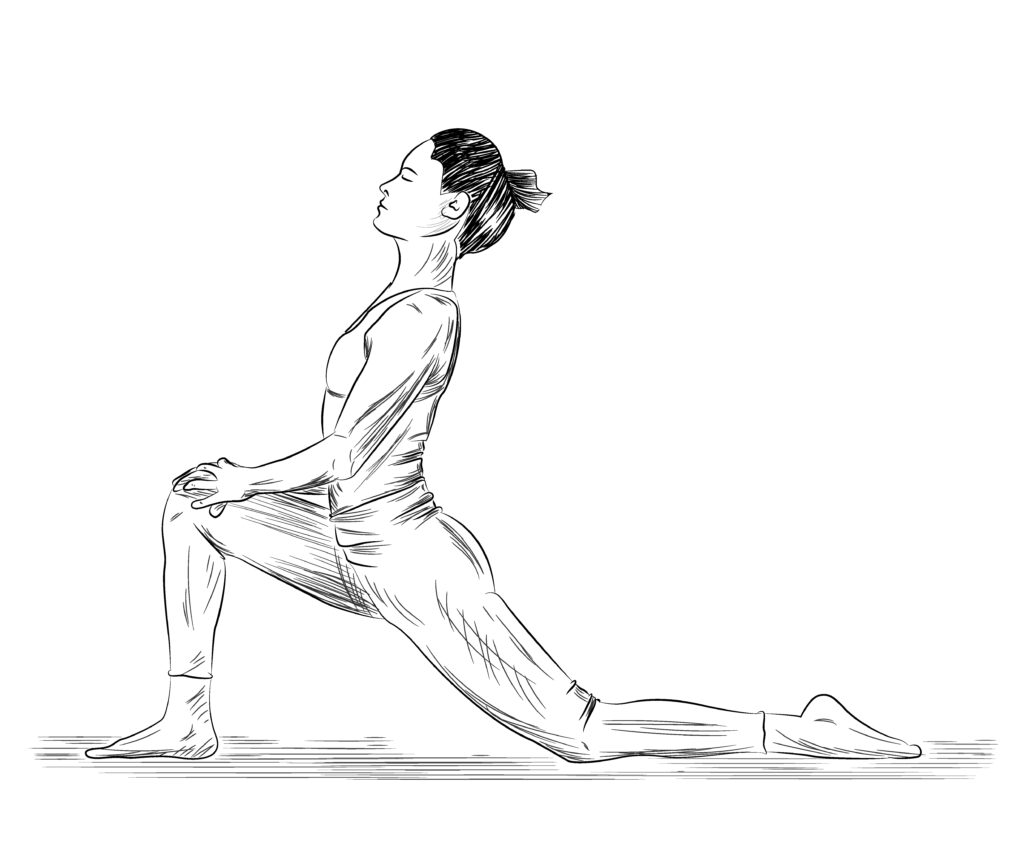
ahn-jah-neh-YAHS-anah
Stretches the hip flexors, hamstrings, and groin
Decreases sciatic pain
Opens the chest and abdomen
Creates low spine stability
Strengthens the thighs, quadriceps, and glutes
Start in Adho Mukha Svanasana (Downward-Facing Dog).
On an exhale, step the right foot forward between the palms, and stack your knee in line with your ankle.
Gently lower your left knee down and allow the top of the foot to settle on the mat. Slide your left knee back as far as feels comfortable.
Inhale and slowly rise, sweeping your hands overhead to frame the ears. Turn the palms to face one another. Take your gaze up to your fingertips.
As you exhale, draw your pubic bone to your navel and lift the ribcage away from the hips.
Hold this pose for up to a minute. Use your inhales to lengthen the spine and exhales to deepen the stretch.
To release the posture, inhale and lengthen your torso. Exhale, release the hands to the floor, and step back to Downward-Facing Dog. Repeat on the opposite side.
Lift the torso to lengthen the upper and lower spine, and firm your abdominals.
Lift your ribcage away from your hips and press the hips forward to deepen the stretch.
Avoid if you have a groin injury or knee injury
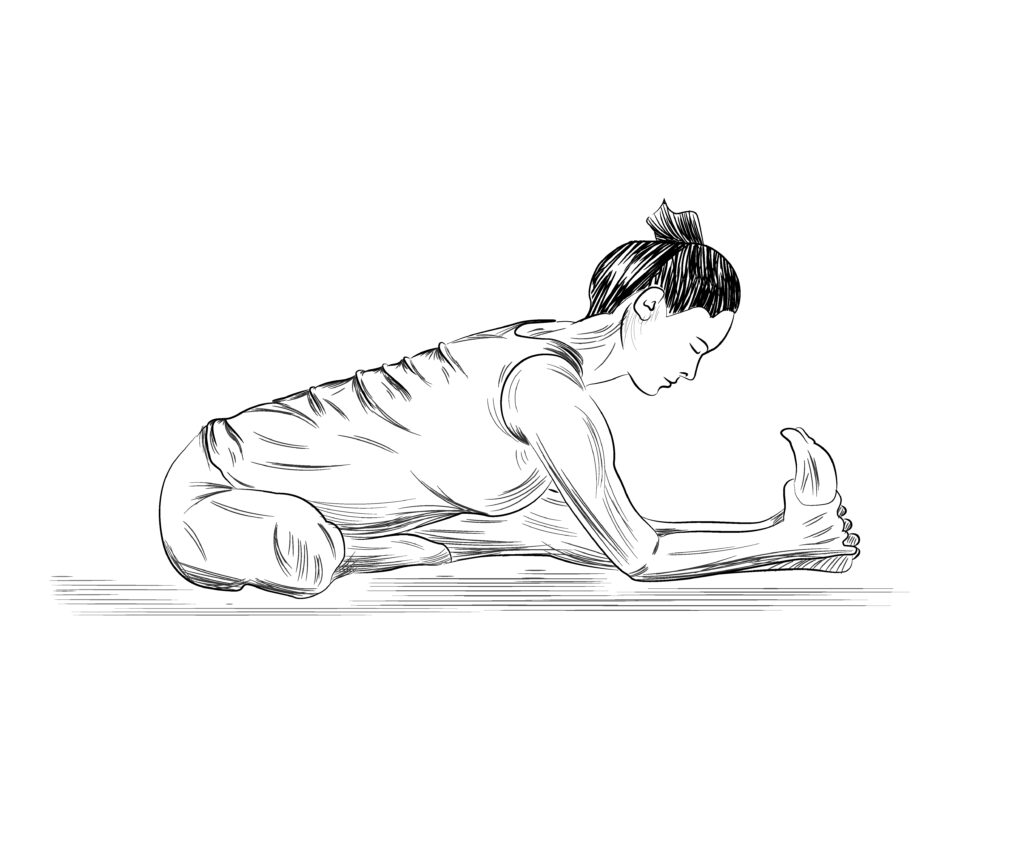
jah-noo SHEER-SHAH-sah-nah
Stretches spine, hamstrings and groin
Tones abdominal organs and uro-genital system
Calms mind and relieves anxiety
Sit with your legs stretched in front of you.
Bend your right leg and place the sole of your foot against your left upper thigh. Flex your left foot.
Turn your upper body toward your extended leg. Slowly bend forward with an exhale.
Walk your hands down your leg and grasp your shin, ankle, or toes. Relax your neck.
Hold the pose and take slow, deep breaths.
Rise with an inhale. Change sides.
Keep neck in line with spine
Bend elbows
Flex extended foot
Avoid this pose if you have asthma or a knee injury.
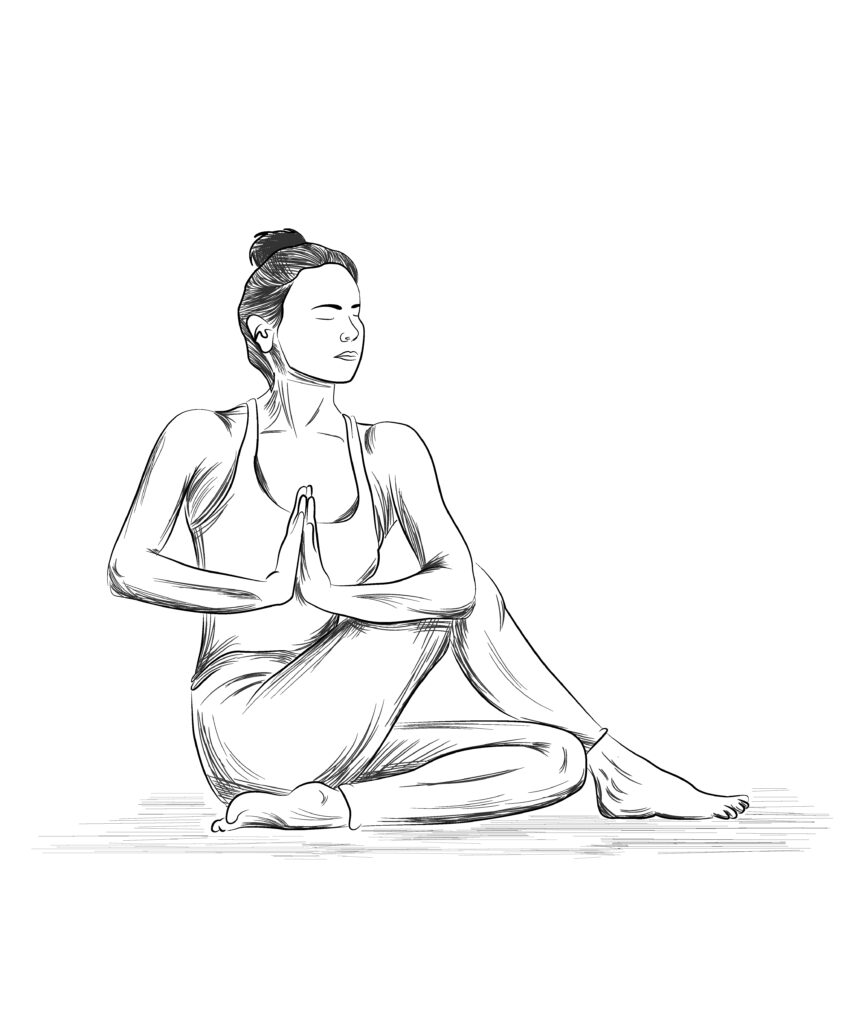
ard-ha mats-yun-DRAS-unna
Tones the spinal nerves
Stretches the back muscles
Massages the abdominal organs and improves digestion
Improves kidney function
Begin sitting on your heels in Thunderbolt pose (Vajrasana).
Shift your hips to the left so that you’re sitting on the floor to the left of your feet.
Cross your right foot just outside of your left knee. Keep the foot flat on the floor.
Bring your right hand to the floor a few inches behind you. Lightly push your hand into the ground to straighten your spine.
Inhale and reach your left hand toward the sky.
Exhale and bend your left arm, using your elbow like a lever against your right knee. Gaze over your right shoulder.
Stay in the pose for several breaths. Inhale and untwist, then change sides.
Begin with a vertical spine and then twist.
Twist from the core, not the upper body.
Grow taller with each inhale. Twist deeper from the core with each exhale.
Avoid if Sciatica, Slipped disc, Peptic ulcer